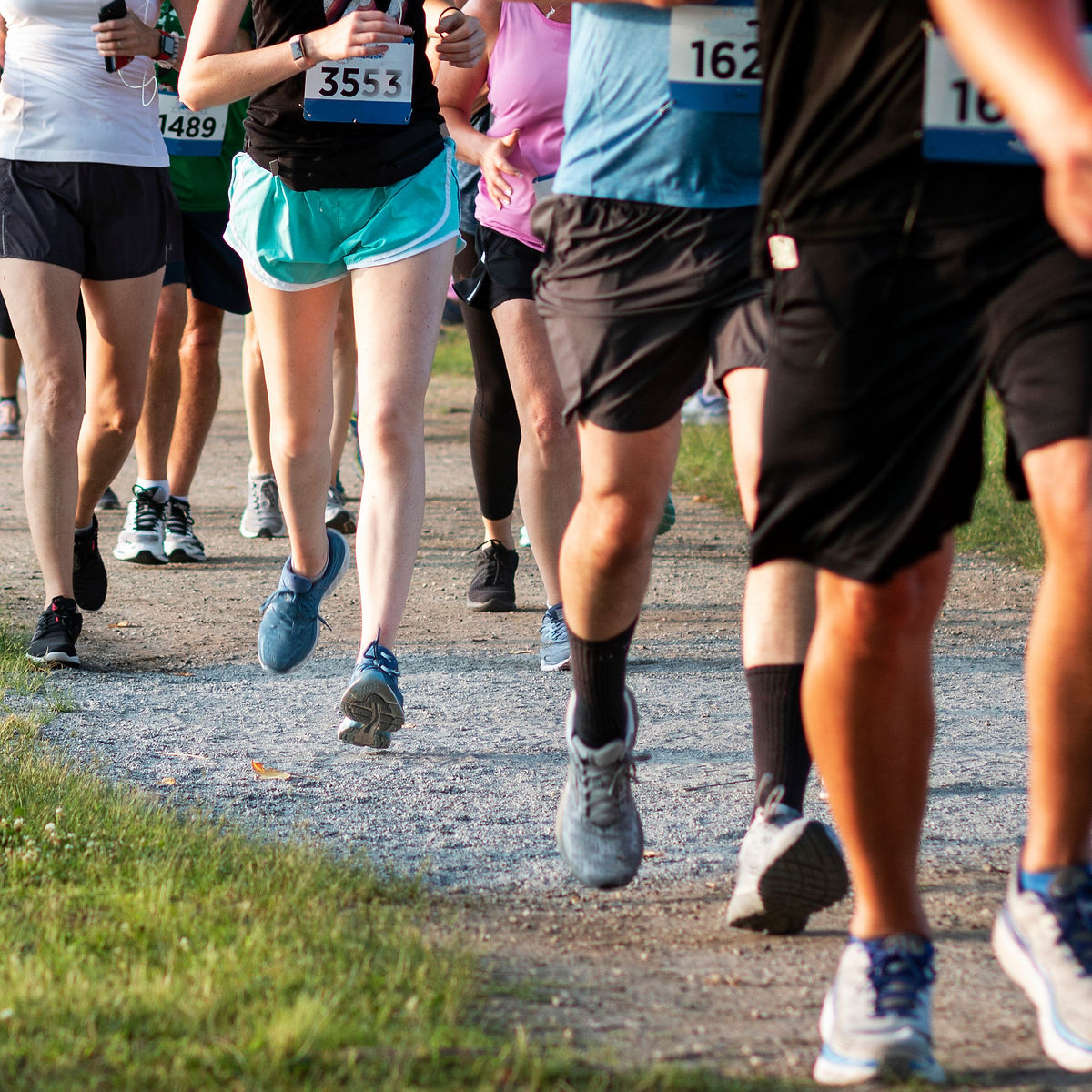April’s Unite to Fight 5K is for everyone, regardless of age or skill. But for anyone motivated to kick things up a notch, Monica Concha, certified personal trainer and Filling in the Blanks volunteer, shares training trips below. And for help with your fundraising efforts, we’ve got you covered there too >>
Take time to warm up
A dynamic warm-up (continuous active movements for approximately 10-15 minutes) is key to promoting blood flow, increasing body temperature, and injury prevention. Plus, it sets the stage for your recovery post-workout.
Train SMART
If you’re doing cardio (running/walking/biking/cross-training) and/or strength training (weight-bearing/bodyweight/fitness classes), give yourself time to rest and recover between workouts. Regardless of your fitness level, it’s important to avoid overtraining. If you’re feeling especially sore or tired, listen to your body. It’s OK to skip a day.
Hydrate, hydrate, hydrate
Drinking water throughout the day is vital to all sorts of bodily functions: temperature regulation, joint lubrication, delivering nutrients to the cells, and preventing muscle cramps to name a few. While hydrating it’s important to keep in mind electrolyte balance. Electrolytes help regulate muscle contractions and keep you hydrated—depending on the type and intensity of your workouts, plain water may not be sufficient to keep electrolytes in balance. Sports drinks often contain electrolytes, or they can be added to plain water in powder form.
Stay fueled
What you eat and when you eat it has a huge impact on your training. Some people can exercise on an empty stomach and do relatively well, while others require food intake before they can even think about working out. An easily digestible carb works well for those who require a pre-workout meal. Carbohydrates provide immediate fuel to the body which is why they’re recommended for harder and longer workouts.
Get a good night’s sleep
Are you catching enough Zzzs?!? This is something a lot of people struggle with, but as you already know, sleep plays a massive role in how we operate on a daily basis. It is recommended to get 7-9 hours of sleep every night and although that may seem like a stretch, it makes a real difference.
Practice active recovery
Active recovery involves keeping your body moving but without the added stress and strain of your training days. Incorporating some low-intensity activities—like yoga, swimming, or a relaxed walk—can help increase and improve circulation, while potentially flushing out any lactic acid buildup (the stuff that causes sore muscles).
Whatever your training goals are, it’s important to make it enjoyable. If you’re forcing yourself to do something just to do it, chances are you might be doing more harm than good. If you’re struggling with motivation, find a training buddy. If you are the type of person who prefers to work out alone, try switching things up to avoid monotony. Remember: the only person you are competing against is you!
Get ready for showtime!
In the week leading up to race day, less is more. Ease up and keep your run/walk to 2-3 days this week. Give yourself 1-2 full days of rest and recovery depending on your fitness level. You’re amazing for making the commitment to see this through and regardless of the outcome, you should be proud of yourself. See you on race day, champ!
